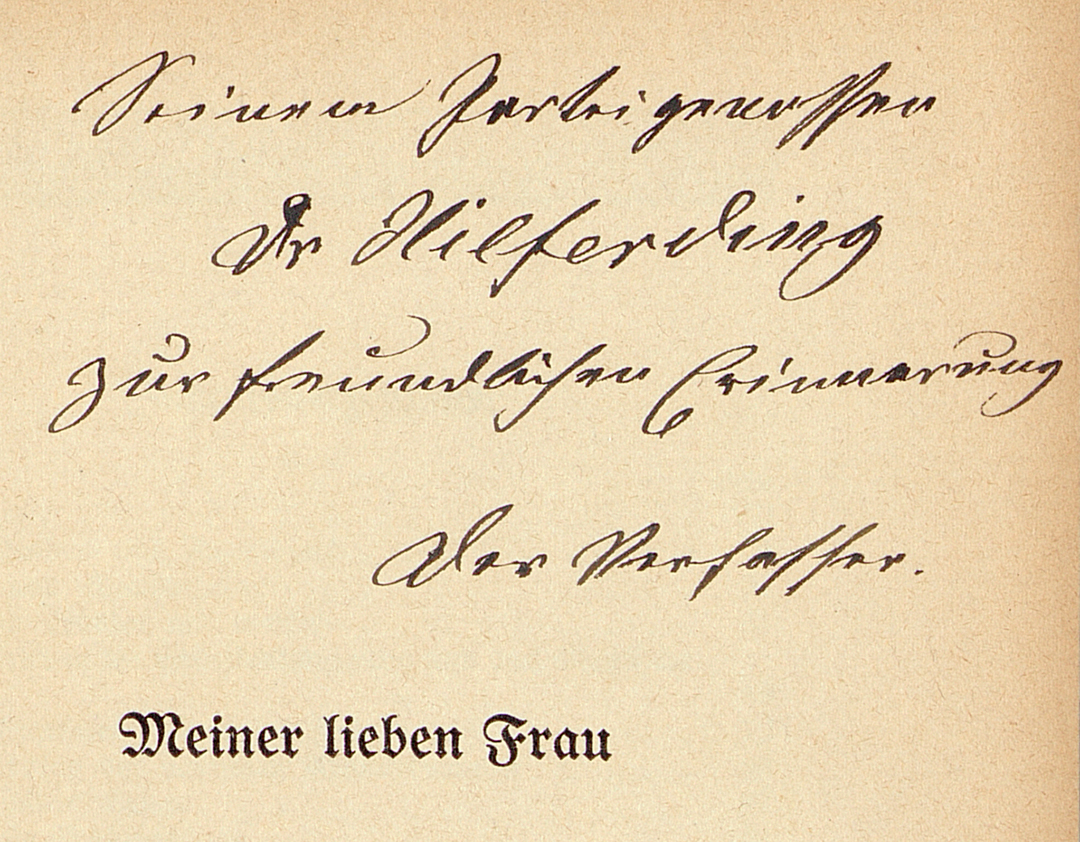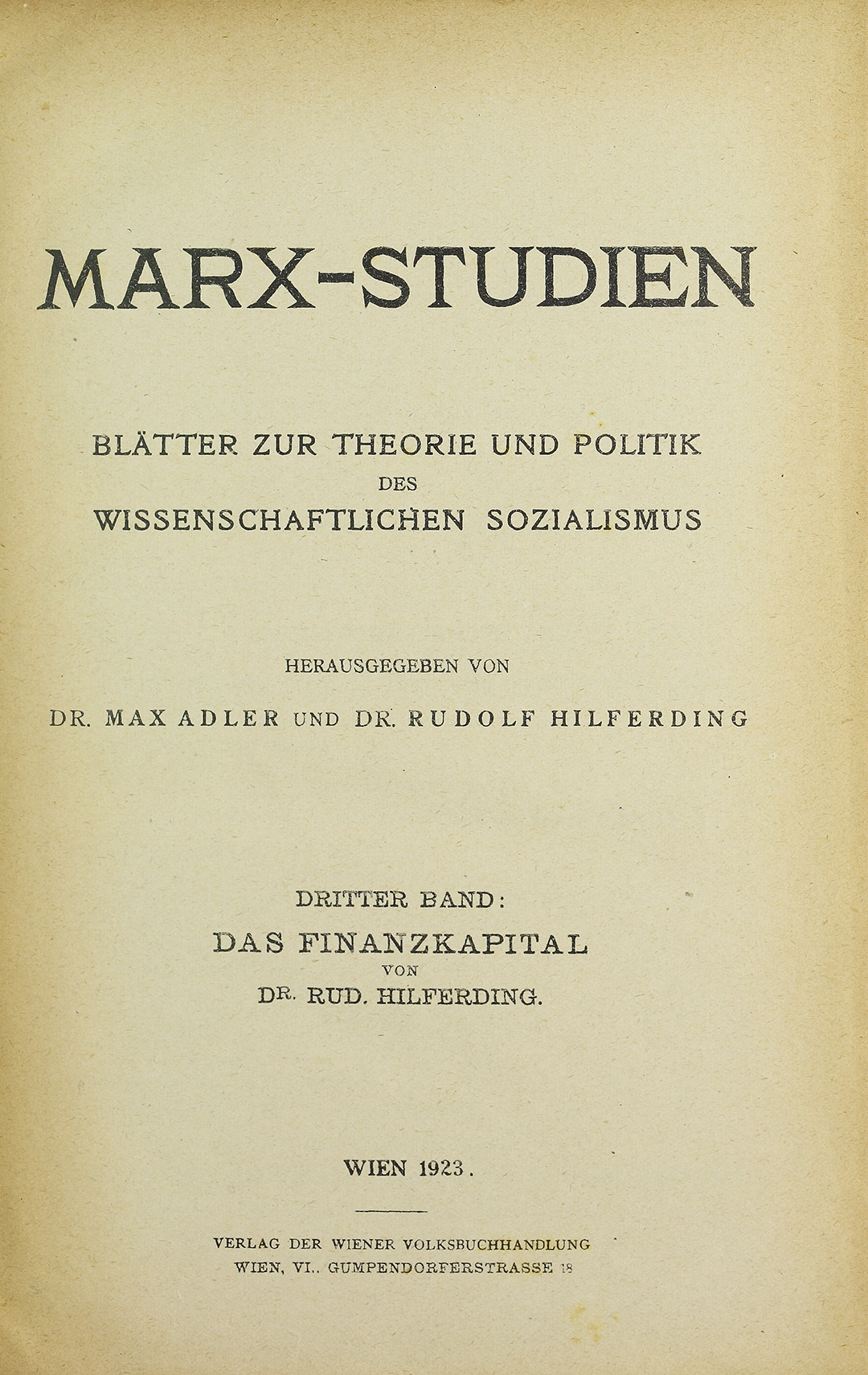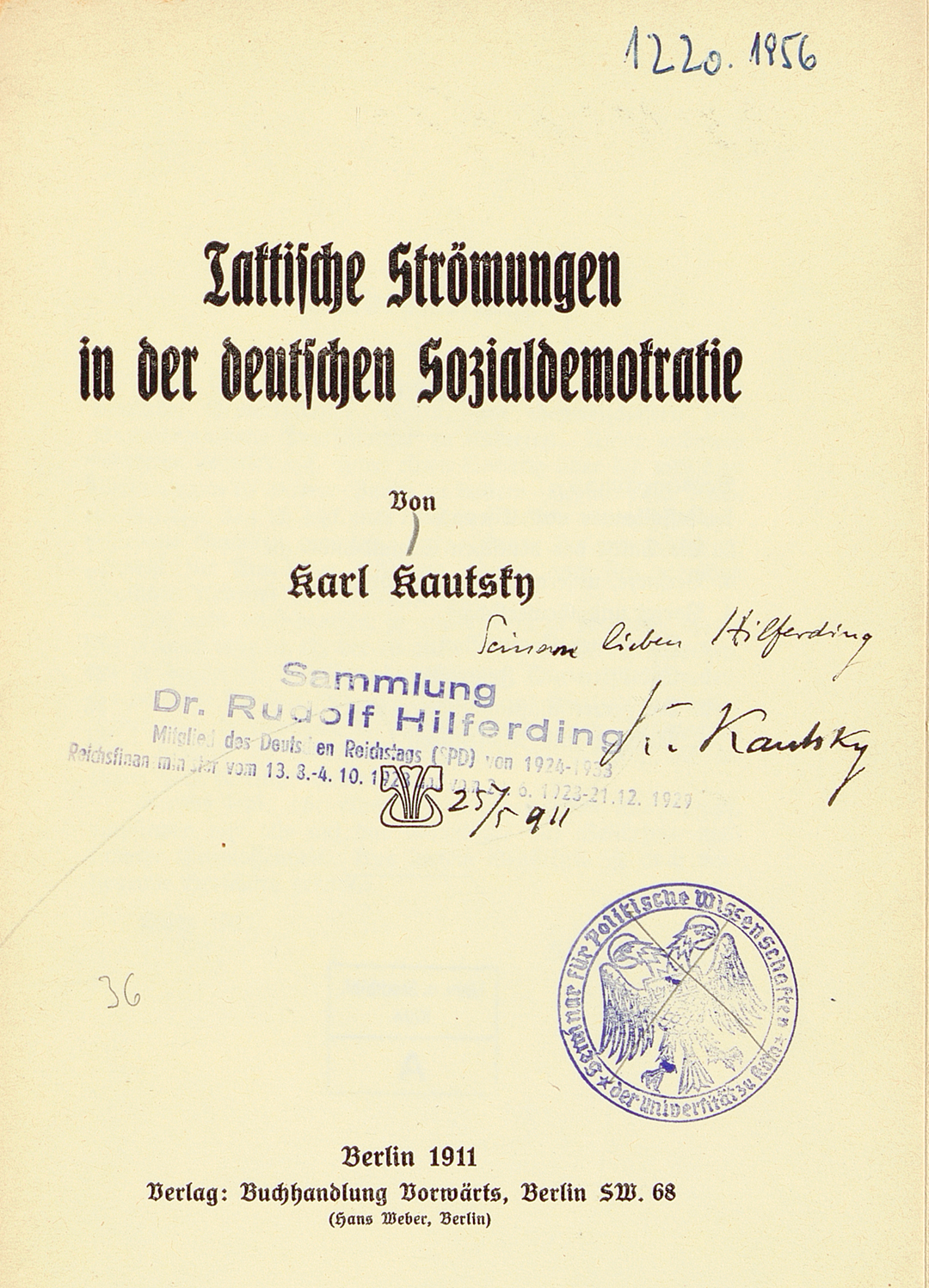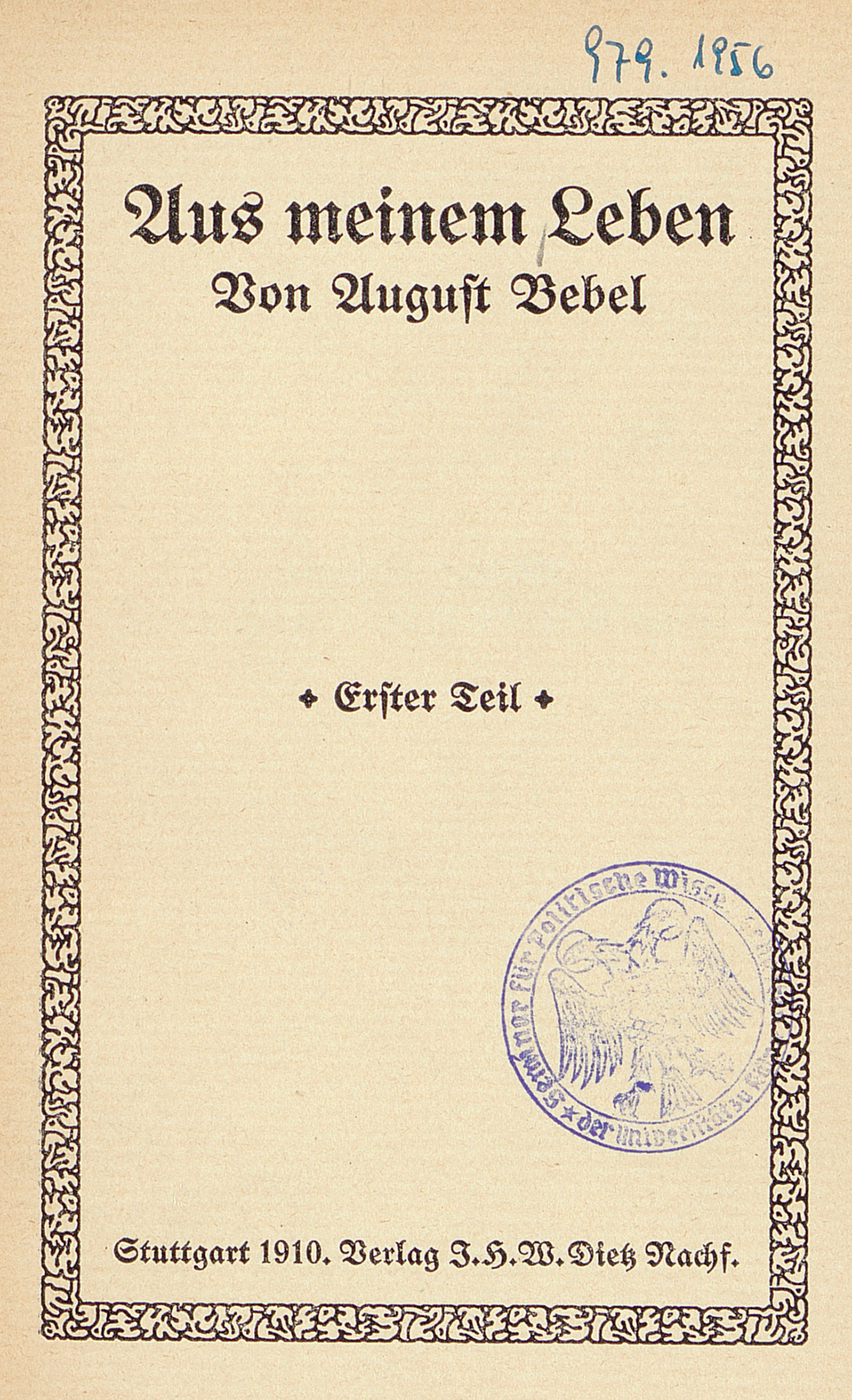Hilferding - The Books of the Reich Minister of Finance
In March 1957, the director of the Department of Political Science at the University of Cologne, Prof. Dr. Heinrich Brüning, instructed his research assistant Dr. H. J. Unland to inform the UCL that the Department had acquired Rudolf Hilferding's library. The widow Dr. Rose Hilferding, who lives in the USA, donated her husband's so-called reference library in 1956. Thus the books of the former Reich Finance Minister of the SPD had been transferred to the care of the former Reich Chancellor of the Centre Party. Today approximately 700 volumes are located in the UCL, placed under the shelf mark HILF. The reference library contains important works on socialism, international politics and economics up to the year of publication 1933. The indexing of the books also included the recording of the provenances, so that dedications by prominent party members such as August Bebel and Karl Kautsky but also by friends of Hilferding such as René Schickele were recorded.
Dr. Rudolf Hilferding (1877-1941)
Rudolf Hilferding was born in Vienna on 18 August 1877 as the son of a wealthy Jewish family. He studied medicine at the university there, but at the same time he was already involved in social, national economic and financial issues at an early age. After receiving his doctorate in 1901, he initially practised as a doctor. One year later he worked with Karl Kautsky on the newspaper "Neue Zeit" and in 1906 August Bebel appointed him to the party school of the SPD in Berlin. Hilferding's major work "Das Finanzkapital" from 1910 brought him the reputation of being the most important socialist economist in the German language. The convinced pacifist was drafted into the Austrian military in 1914 and served as a doctor on the Italian front until the end of the war. From 1919 to 1922, he was a member of the USPD and then the SPD in Germany. Hilferding first became Minister of Finance in the cabinet of Reich Chancellor Stresemann in 1923. Once again, the financial expert, who played a decisive role in the creation of Deutsche Rentenmark, was appointed minister in the cabinet of the SPD-led government of Hermann Müller (1928-1929).
In 1933, the SPD politician of Jewish faith was expatriated by the National Socialists. Before that, he had already fled via Denmark to Switzerland to Zurich and from there at short notice to Czechoslovakia, where he was exiled to the SPD's executive committee in exile. Finally he emigrated to Paris. In February 1941 Rudolf Hilferding was arrested and severely ill-treated. Two days later he died in the Gestapo prison La Santé in Paris. His wife succeeded in emigrating to the USA.
Book transfer Boston - Cologne
Before Rudolf Hilferding was arrested and handed over to the Gestapo in Paris, he and Rudolf Breitscheid were forcibly interned by the Vichy government in a hotel in Arles. During this time, Rose Hilferding tried every means to free her husband and to begin the planned departure to the USA. She wrote to Germany and begged her companions and politicians for support, but nobody helped. Only Heinrich Brüning, himself in US exile since 1935 and professor at Harvard University since 1939, started a futile rescue operation. In Boston he finally met Rose Hilferding. In 1951, Brüning went back to Germany for a few years, where he led the Seminar for Political Science at Cologne University, which explains the gift of books by the widow who donated her husband's books to political science. To commemorate the politician of the Weimar Republic, the volumes were kept in the seminar library. In 2011, Hilferding's books were handed over to the UCL.
selected literature
- Sammlung Dr. Rudolf Hilferding. Köln: Seminar für politische Wissenschaften, 1957., Signatur: 3L1364
- Hilferding, Rudolf: Das Finanzkapital. Wien, 1910., Signatur: VWL/157/B-23-11
- Greitens, Jan: Finanzkapital und Finanzsysteme. Das "Finanzkapital" von Rudolf. Hilferding. Marburg, 2012., Signatur: AWM1448
- Rudolf Hilferding im Pressearchiv "Pressemappe 20. Jahrhundert" der ZBW Leibniz Informationszentrum Wirtschaft.




